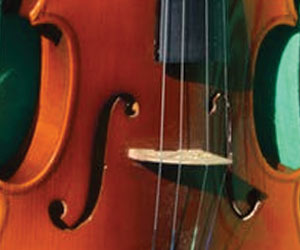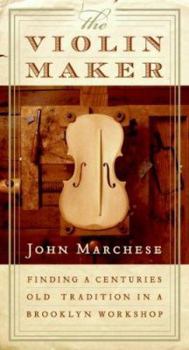The Violin Maker: Finding a Centuries-Old Tradition in a Brooklyn Workshop
Select Format
Select Condition 
Book Overview
" A] magical, profound, and elegant look at the continued need for high quality in our throw away society." --Douglas Brinkley, Historian
This intensely human story, which moves from an ageless workshop in Brooklyn to the rehearsal rooms of Carnegie Hall and Lincoln Center, and across the globe to Cremona, the birthplace of Stradivari, opens up for the reader the insular and fascinating realm of music, musicians, and the craftsmanship that is essential to that world.
How does a simple piece of wood become the king of instruments?
On a quest to learn about what many consider the world's most perfect instrument, author and musician John Marchese befriends Sam Zygmuntowicz, an old-world craftsman in Brooklyn, New York, along with the man who is waiting for Sam's next violin, Eugene Drucker of the world famous Emerson String Quartet.
The violin does something remarkable, magical, and evocative. It is capable of bringing to life the mathematical marvels of Bach, the moan of a Gypsy melody, the wounded dignity of Beethoven's Concerto in D Major. No other instrument is steeped in such a rich brew of myth and lore--and yet the making of a violin starts with a simple block of wood. The Violin Maker takes the reader on a journey as that block of wood, in the hands of a master craftsman, becomes an instrument to rival one made by the greatest master of all time.
Customer Reviews
The Violin Maker: Insightful. Humble. Informative & Cleverly done.
The "magic box"
From a father's point of view
The violin Maker
Great insight into the mind and craft of a luthier
The Violin Maker: Finding a Centuries-Old Tradition in a Brooklyn Workshop Mentions in Our Blog






